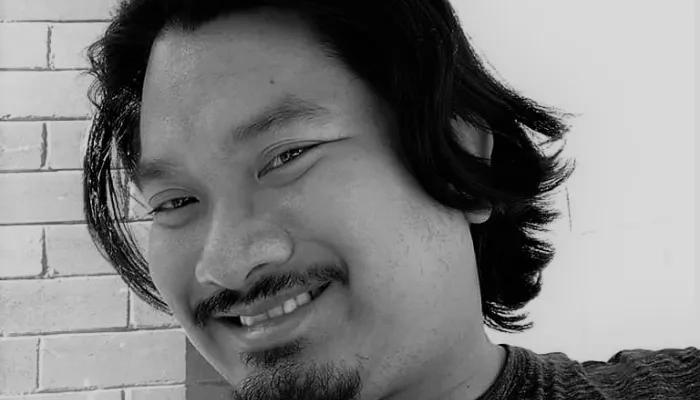A Poetry Mixtape Edited by Greg Santos
Greg's Liner Notes
Over the years, when I’ve been asked where I come from, my answer has generally been a mouthful. To make a long story short, I identify as being Canadian, Portuguese, Spanish, and Cambodian. To be more specific, I was raised in Montreal by my parents, who were Portuguese and Spanish immigrants to Canada. I am also an adoptee whose birth parents were Cambodian refugees. Both of these statements are key to my life story. To quote Walt Whitman, “I am large, I contain multitudes.”
According to Wikipedia, the definition of the word diaspora is: “a population that is scattered across regions which are separate from its geographic place of origin.” With this description and my family history in mind, I find myself drawn to art that explores the complexity of being a child of diaspora. The poems that make up this Diaspora Voices mixtape are by contemporary poets who take their rich and diverse diaspora life stories and craft these experiences into poems.
Here you’ll find a grandfather and granddaughter who struggle to connect due to language barriers. But making Mexican pan dulce from scratch becomes a source of pride in “Pan Dulce” by Jose Hernandez Diaz.
Or a Cambodian-American father’s cherished child as the living embodiment of light, “You are the antidote/ to what came before”, when contrasted against the darkness of the Cambodian genocide in “Moon in Khmer” by Bunkong Tuon.
I also wanted to feature poems whose diaspora speakers have complicated and ambivalent feelings about their connection to their ancestral homelands, like in “Dear Diaspora Child” by Cicely Belle Blain, “Self-Portrait in Siem Reap” by Monica Sok, “diaspora babies” by Kai Cheng Thom, and “Bad Brown Girl” by Hana Shafi. A particularly evocative example of this ambiguousness appears in “diaspora babies”, where Thom’s speaker states they are “written in the margins/ of a map of a place/ called No Homeland.”
In these poems, there is distinct feeling of saudade, which is a nearly untranslatable Portuguese word. The closest definition I can think of is that feeling of longing for someone, something, or someplace that you remember fondly but know you can never experience again. To live with saudade is to live in the presence of absence.
There are also poems here where readers are transported alongside speakers who are reflecting on the sacrifices they and their ancestors would have experienced on their harrowing journeys, like in “Northern Light” by Jillian Christmas, or in the story of one of the first large group crossing of Caribbean immigrants to England in Valerie Mason-John’s “The Windrush.”
This mixtape also features poems which explore troubling moments in Canadian history, like when people were forcibly relocated in Michael Prior’s “A Hundred and Fifty Pounds,” about the Japanese Internment, and in the varied struggles people endured on their sometimes voluntary and other times enforced journeys to new lands in the poem “people arrived” by Kaie Kellough.
I hope the poems in this Diaspora Voices mixtape bring the readers on a journey to experience the richness of words and life stories of different diaspora voices, allowing you to step into someone else’s shoes, even if it is just for a short while. Bon voyage!
The Poems
J-Card (PDF)
Recommended reading
“Cigarettes and SoCal Skeletons”: An Interview with José Hernández Díaz, Neon Pajamas
“A Conversation with Monica Sok”, The Adroit Journal
Poet Kaie Kellough reads from Magnetic Equator, Griffin Poetry Prize, YouTube
“Landscape as Mindscape”: A Conversation with Michael Prior, The Rumpus
Cicely Belle Blain - Episode 3 Voices / Voix Podcast
Valerie Mason-John, Poetry in Voice biography and micro-interview
“Diaspora Babies” by Kai Cheng Thom, Love Intersections, YouTube










